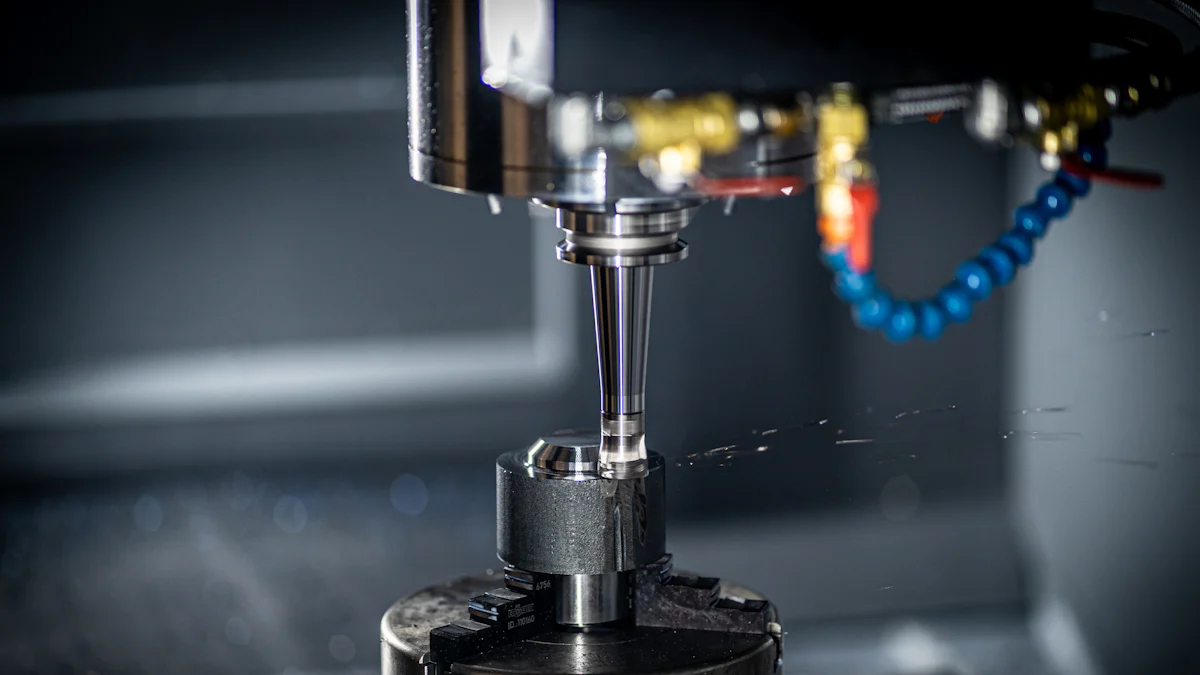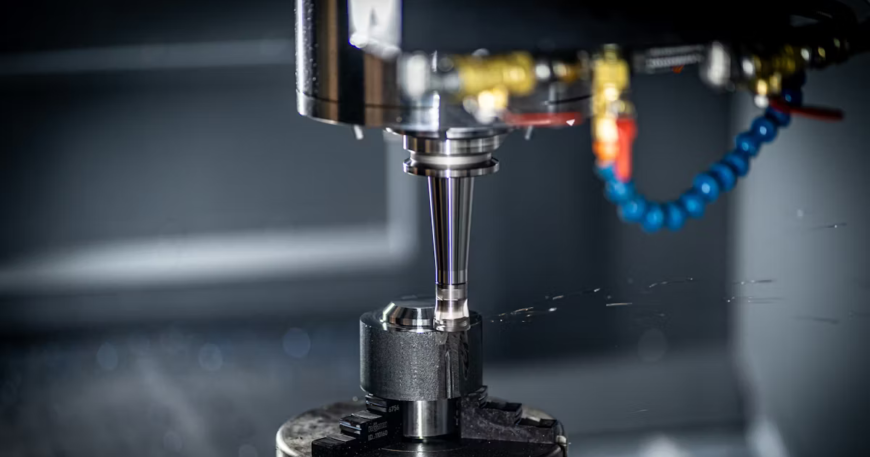Exploring CNC Machining Centers: A Comprehensive Guide

CNC Machining Centers: An Overview
The Technology Behind CNC Machining Centers
CNC machining centers are at the forefront of modern manufacturing, leveraging cutting-edge technology to enable precise and efficient machining operations. These automated machines integrate computer numerical control (CNC) technology, which allows for the automation of various machining processes. The utilization of CAD/CAM software further enhances the capabilities of CNC machining centers by seamlessly translating design specifications into precise machining instructions.
The precision manufacturing process of CNC machining centers ensures high accuracy and repeatability through advanced sensors and actuators. This level of precision is crucial in meeting the stringent quality standards required in various industrial applications.
The Technology Behind CNC Machining Centers
Precision Engineering in CNC Machining Centers
In the realm of CNC technology, precision engineering is paramount to achieving high accuracy and repeatability in machining operations. Advanced sensors and actuators are pivotal components that play a crucial role in the precision manufacturing process of CNC machining centers. These sophisticated sensors enable real-time feedback and adjustments, ensuring that each machining operation meets the exact specifications with minimal margin for error.
The integration of computer numerical control technology has revolutionized automated machining processes, allowing for intricate designs to be executed with unparalleled precision. The utilization of automated machining technology enhances the overall efficiency and reliability of CNC machining centers, making them indispensable in modern manufacturing operations.
CAD/CAM Integration for Seamless Machining Operations
The seamless integration of CAD/CAM software is a defining feature of CNC machining centers. This integration enables the seamless translation of design specifications into precise machining instructions, optimizing the entire manufacturing process. By leveraging this advanced software, manufacturers can efficiently program complex toolpaths and optimize cutting strategies to achieve superior results.
Furthermore, the utilization of CAD/CAM software enhances the adaptability and precision of CNC machining operations, empowering manufacturers to produce intricate components with exceptional accuracy.
Advanced Capabilities of CNC Machining Centers
Multi-Axis Machining
CNC machining centers boast advanced multi-axis capabilities that enable the production of complex and intricate parts with unparalleled precision. By allowing simultaneous machining from multiple angles, these centers enhance productivity and efficiency, making them indispensable in modern manufacturing operations.
The multi-axis machining feature facilitates the creation of intricate components that demand high-precision production. This capability is particularly beneficial in industries such as aerospace and automotive manufacturing, where the demand for highly accurate manufacturing processes is paramount to ensure the quality and performance of end products.
Automated Tool Changing
Incorporating automated tool changing systems into CNC machining centers significantly reduces downtime and enhances operational efficiency. The seamless integration of automated tool changing not only streamlines the machining process but also contributes to the versatility of operations. This feature enables manufacturers to execute a wide range of machining tasks without interruptions, leading to increased productivity and cost-effectiveness.
The implementation of automated tool changing aligns with the industry’s focus on accurate manufacturing practices, ensuring that each component produced meets stringent quality standards while optimizing production throughput.
Industrial Applications of CNC Machining Centers
Industrial Utilization of CNC Machining Centers
CNC machining centers find extensive industrial utilization across various sectors, showcasing their versatility and precision in manufacturing processes. The automotive industry relies heavily on CNC machining centers for the production of precision components that meet stringent quality standards. These centers play a pivotal role in fabricating intricate automotive parts with high efficiency and accuracy, contributing to the overall quality of vehicles.
In the aerospace industry, CNC machining centers are indispensable for crafting complex and lightweight aircraft components. The advanced capabilities of these machining centers align with the aerospace industry’s demand for high-precision manufacturing. Stringent quality control measures ensure compliance with aerospace standards, emphasizing the crucial role of CNC machining centers in meeting the rigorous requirements of this sector.
The industrial applications of CNC machining centers extend beyond these sectors, demonstrating their widespread manufacturing uses in various industries seeking unparalleled precision and efficiency.
Ensuring Quality in CNC Machining Centers
Quality Control Measures
Maintaining high precision and accuracy in CNC machining operations requires the implementation of stringent quality control measures. Advanced inspection technologies play a pivotal role in upholding the quality standards of CNC machining centers. These technologies enable thorough examination and validation of each machined component, ensuring that they meet the exact specifications with exceptional precision.
The integration of automated inspection systems further enhances the quality control process, allowing for comprehensive assessments of dimensional accuracy and surface finish. This meticulous approach to quality control reinforces the reliability and performance of CNC machining centers, instilling confidence in the manufacturing output.
Performance Optimization
Continuous performance optimization is imperative for maximizing the efficiency and output of CNC machining centers. One key aspect of performance optimization lies in the seamless integration of predictive maintenance strategies. By leveraging predictive maintenance, manufacturers can proactively address equipment maintenance needs, minimizing downtime and maximizing operational efficiency.
Moreover, optimizing tool changing processes significantly contributes to overall performance. Efficient tool changing systems ensure minimal disruptions during machining operations, enhancing productivity and cost-effectiveness. The strategic utilization of advanced tool swapping techniques further elevates the versatility and efficiency of CNC machining centers, paving the way for enhanced manufacturing capabilities.
Embracing the Future with CNC Machining Centers
As we look ahead, the evolution of CNC technology continues to reshape the landscape of modern manufacturing. The advanced capabilities and technological advancements of CNC machining centers are driving this transformation, paving the way for enhanced productivity and unparalleled precision in manufacturing operations. Embracing automated machining centers opens new frontiers, ensuring that the future of manufacturing is characterized by seamless integration, precision engineering, and optimal efficiency.
- The continued innovation in CNC technology promises to revolutionize manufacturing processes.
- Automated machining centers are at the forefront of shaping the future of industrial production.



